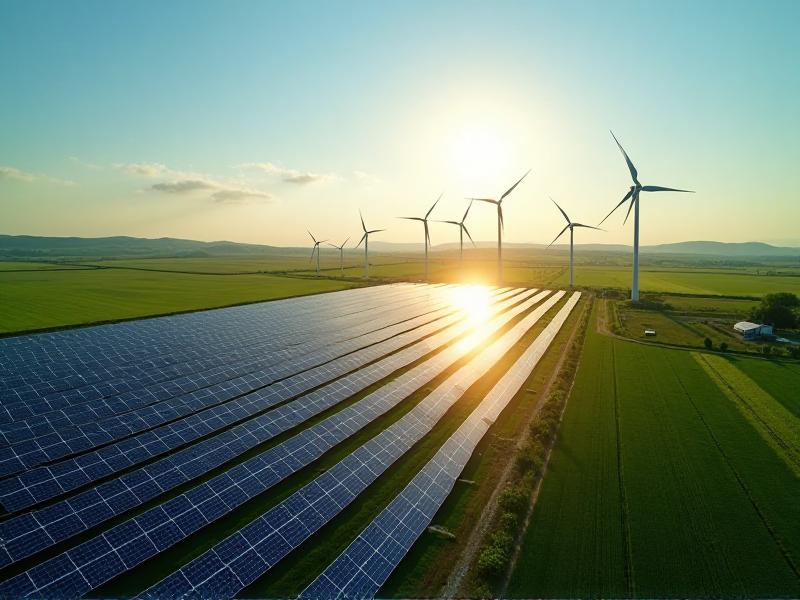The Environmental Impact of Renewable Energy
Investing in renewable energy is one of the most effective ways to combat climate change. Unlike fossil fuels, renewable energy sources such as solar, wind, and hydropower produce little to no greenhouse gas emissions. By transitioning to these cleaner energy sources, we can significantly reduce our carbon footprint and mitigate the adverse effects of global warming.
Renewable energy also helps preserve natural ecosystems. Traditional energy production often involves destructive practices like mining and drilling, which can lead to habitat destruction and biodiversity loss. In contrast, renewable energy projects can be designed to coexist with natural environments, minimizing ecological disruption.
Moreover, renewable energy reduces air and water pollution. Fossil fuel combustion releases harmful pollutants into the atmosphere, contributing to respiratory diseases and other health issues. Renewable energy technologies, on the other hand, generate power without emitting these pollutants, leading to cleaner air and water for communities.
Economic Advantages of Renewable Energy Investments
Investing in renewable energy can drive economic growth by creating jobs and stimulating innovation. The renewable energy sector is labor-intensive, requiring skilled workers for the design, installation, and maintenance of energy systems. This creates employment opportunities across various skill levels, from engineers to technicians.
Renewable energy also reduces energy costs in the long run. While the initial investment in renewable energy infrastructure can be high, the operational costs are relatively low. Solar and wind energy, for example, have no fuel costs, making them more cost-effective over time compared to fossil fuels, which are subject to price volatility.
Additionally, renewable energy investments can enhance energy security. By diversifying energy sources and reducing dependence on imported fuels, countries can protect themselves from geopolitical risks and price fluctuations. This stability can attract foreign investment and boost economic resilience.
Social Benefits of Renewable Energy
Renewable energy can improve quality of life by providing access to clean, reliable power. In many developing regions, renewable energy projects bring electricity to remote areas, enabling communities to access essential services like healthcare, education, and communication. This can lead to improved living standards and greater social equity.
Health benefits are another significant advantage. By reducing air pollution, renewable energy can lower the incidence of respiratory and cardiovascular diseases. Cleaner air means fewer hospital visits and a healthier population, which can reduce healthcare costs and increase productivity.
Furthermore, renewable energy can empower communities by fostering local ownership and participation. Community-based renewable energy projects allow residents to take control of their energy supply, creating a sense of ownership and promoting social cohesion. This participatory approach can also lead to more equitable energy distribution.
Technological Innovations in Renewable Energy
Technological advancements are driving the rapid growth of renewable energy. Innovations in solar panel efficiency, wind turbine design, and energy storage systems are making renewable energy more accessible and affordable. These breakthroughs are essential for scaling up renewable energy adoption and achieving global climate goals.
Energy storage is a critical area of innovation. Batteries and other storage technologies allow excess energy generated from renewable sources to be stored and used when needed, addressing the intermittency issue of solar and wind power. This ensures a stable and reliable energy supply, even when the sun isn’t shining or the wind isn’t blowing.
Smart grid technology is another game-changer. Smart grids use digital communication to monitor and manage energy distribution, optimizing the use of renewable energy and reducing waste. This technology can integrate various energy sources, creating a more flexible and resilient energy system.
Policy and Regulatory Support for Renewable Energy
Government policies and regulations play a crucial role in promoting renewable energy. Incentives such as tax credits, grants, and subsidies can make renewable energy projects more financially viable, encouraging investment and development. These policies can also level the playing field by addressing the historical advantages of fossil fuels.
Regulatory frameworks are essential for integrating renewable energy into the grid. Standards and guidelines ensure that renewable energy systems are safe, reliable, and efficient. They also facilitate the connection of renewable energy projects to the grid, enabling wider adoption and distribution.
International agreements and collaborations are also important. Global initiatives like the Paris Agreement set targets for reducing greenhouse gas emissions and promote the adoption of renewable energy. By working together, countries can share knowledge, resources, and best practices, accelerating the transition to a sustainable energy future.
The Future of Renewable Energy
The future of renewable energy is bright, with continued growth and innovation on the horizon. As technology advances and costs decline, renewable energy is becoming increasingly competitive with traditional energy sources. This trend is expected to continue, making renewable energy the dominant form of power generation in the coming decades.
Emerging technologies like floating solar panels, offshore wind farms, and hydrogen fuel cells are expanding the possibilities for renewable energy. These innovations can unlock new resources and applications, further driving the transition to a sustainable energy system.
Public awareness and demand for clean energy are also growing. Consumers, businesses, and governments are recognizing the benefits of renewable energy and are increasingly prioritizing sustainability. This shift in mindset is creating a powerful momentum for change, paving the way for a cleaner, greener future.




